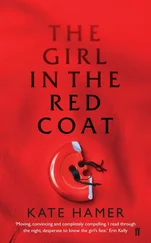He tried to draw strength from thinking about Olga. Whatever happened, she must not wake up and see a drawing of her father on all the front pages. He tried to reassure himself that the hardest part was behind them. Assuming Zander had given them the right location, the job should be straightforward. They were three heavily armed men, four if you counted Bogdanov, who spent most of the time staring at his computer as usual.
The team consisted of Holtser, Bogdanov, Orlov and Dennis Wilton, a gangster who had been a member of Svavelsjö M.C. but who now worked for Kira. Four men against one woman who was probably asleep, and was also protecting a child. It shouldn’t be a problem, not at all. But Kira was almost manic:
“Don’t underestimate Salander!”
She said it so many times that even Bogdanov, who always agreed with everything she said, began to get irritated. Of course Holtser had seen how fit and fast and fearless the woman had been on Sveavägen. But the way Kira described her, she must be some kind of superwoman. It was ridiculous. Holtser had never met a woman who could remotely be a match for him — or even for Orlov — in combat. Still, he promised to be careful. First he would go up and check out the terrain and prepare a strategy. They would not be drawn into a trap. He stressed this many times over, and when finally they arrived at an inlet next to a rocky slope and a jetty, he took command. He told the others to get ready in the shelter of the car while he went ahead to identify the house.
Holtser liked early mornings. He liked the silence and the feeling of transition in the air. Now he was leaning forward as he walked, and listening. It was reassuringly dark — no lights were on. He left the jetty behind him and came to a wooden fence with a rickety gate, right next to an overgrown prickly bush. He opened the gate and started to climb up the steep wooden steps holding the handrail on the right, and soon he was able to make out the house above.
It lay hidden behind pine trees and aspens and was only a dark outline, with a terrace on the south side. On the terrace were some glass doors which they would have no trouble breaking through. At first sight he saw no serious difficulty. He was moving almost soundlessly and for a moment he considered finishing off the job himself. Maybe it was even his moral responsibility, and it should be no more difficult than other jobs he had done. On the contrary.
There were no policemen this time, no guards, nor any sign of an alarm system. True, he did not have his assault rifle with him, but then there was no need for it. The rifle was excessive, the result of Kira’s heated imagination. He had his pistol, his Remington, and that was more than enough. Suddenly — without his usual careful planning — he started moving along the side of the house, up to the terrace and the glass doors.
Then he stiffened, without at first knowing why — it could have been a sound, a movement, a danger he had only half sensed. He looked up at the rectangular window above him, but from his position he could not see into it. He kept still, now less and less sure of himself. Could it be the wrong house?
He resolved to get closer and peer in, and then... he was transfixed in the darkness. He was being observed. Those eyes which once before had looked at him were now staring glassily in his direction. That was when he should have reacted. He should have sprinted around to the terrace, gone straight in and shot the boy. But again he hesitated. He could not bring himself to draw his weapon. Faced with that look, he was lost.
The boy let out a shrill scream which seemed to set the window vibrating, and only then did Holtser tear himself out of his paralysis and race up onto the terrace. Without a moment’s reflection he hurtled straight through the glass doors and fired with what he thought was great precision, but he never found out whether he hit his target.
An explosive shadow-like figure came at him with such speed that he hardly had time to brace himself. He knew that he fired another shot and that someone shot back. In the next instant he slammed onto the floor with his full weight, a young woman tumbling over him with a rage in her eyes that was beyond anything he had ever seen. He reacted instinctively and tried to shoot again. But the woman was like a wild animal. She threw her head back and... Crack!
When he came to he had a taste of blood in his mouth and his pullover was sticky and wet. He must have been hit. Just then the boy and the woman passed him, and he tried to grab hold of the boy’s leg. At least he thought he did. But suddenly he was gasping for breath.
He no longer understood what was going on. Except that he was beaten, but by whom? By a woman? That insight became a part of his pain as he lay on the floor amidst glass and his own blood, breathing heavily, his eyes shut. He hoped it would be over soon. When he opened his eyes again he was surprised to see the woman still there. Had she not just left? No, she was standing by the table, he could see her thin boyish legs. He tried his utmost to get up. He looked for his weapon, and at the same time heard voices through the broken window, and then he moved once more to attack the woman.
But before he could do anything the woman exploded into motion and stormed out. From the terrace she threw herself headlong into the trees. Shots resounded in the dark and he muttered to himself, “Kill the bastards.” But it was all he could do to get to his feet and he cast a dull glance at the table in front of him.
There was a mass of crayons and paper which he looked at without really taking it all in. Then it was as if a claw had taken hold of his heart. He saw an evil demon with a pale face raising his hand to kill. It took a second or so for him to realize that the demon was himself, and he shuddered.
Yet he could not take his eyes off the image. Only then did he notice something scribbled at the top:
Mailed to police 4.22 .
24. xi, Morning
When Aram Barzani of the Rapid Response Unit made his way into Gabriella Grane’s house at 4.52 he saw a large man dressed in black spreadeagled on the floor next to the round table.
He approached cautiously. The house seemed to have been abandoned. But he was not taking any risks. There were recent reports of a fierce gunfight up at the house and he could hear the excited voices of his colleagues outside on the steep rock slope.
“Here!” they shouted. “Here!”
Barzani did not understand what was going on, and for a moment he hesitated. Should he go to them? He decided to see first what condition the man on the floor was in. There was broken glass and blood all around, and the table was strewn with torn-up pieces of paper and crushed crayons. The man on the ground was crossing himself feebly. He was mumbling something. Probably a prayer. It sounded Russian; Barzani caught the word “Olga”. He told the man that a medical team was on its way.
“They were sisters,” the man said in English.
But it sounded so confused that Barzani attached no importance to it. Instead he searched through the man’s clothes, made sure that he was unarmed, and thought he had probably been shot in the stomach. His pullover was soaked in blood, and he looked alarmingly pale. Barzani asked what had happened. He got no reply, not at first. Then the man gasped out another strange sentence.
“My soul was captured in a drawing,” he said, and seemed to be about to lose consciousness.
Aram stayed for a few minutes to watch him, but when he heard from the ambulance crew he left the man and went down to the rocky slope. He wanted to discover what his colleagues had been shouting about. The snow was still falling and it was icy underfoot. Down by the water voices could be heard and the sound of more cars arriving. It was still dark and hard to see and there were many uneven rocks and straggly pines. The landscape was dramatic and steep. It could not have been easy to fight in this terrain and Barzani was gripped with foreboding. He noticed that it had become strangely quiet.
Читать дальше












